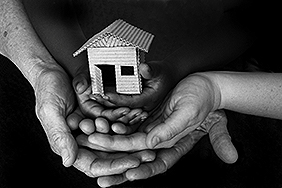Americans love data. We cannot get enough of it. Collectors on speed, we measure every indicator in sight. Children are the youngest, most fragile casualties of our obsessive compulsive disorder. How many words do they have in their emergent lexicons? Do they know their letters? Can they count up to 20? Are they ready for school? Are they reading The Sorcerer’s Stone ahead of the third-grade benchmarks? They’re on treadmills, each milestone anxiously awaited, and dutifully recorded.
Nothing is off limits in our pursuit of cognitive development and predictors of academic achievement. And we start early. Several years ago, Susan Goldin-Meadow and Meredith Rowe, two researchers from the University of Chicago, published a study in Science that revealed a gap among infants’ gesturing across socioeconomic lines—a potential harbinger of stunted language acquisition. In 2014, amid vociferous debate about the Common Core standards, Susan Sirigatti, a former school principal, extrapolated from their findings in a posting to a blog called “A Smarter Beginning.” The headline read “Gesturing Predicts Children’s Future School Success”—a symptom of our ever-growing anxiety.
Recently, Megan McClelland, an associate professor of health and child development at Oregon State University tracked the outcomes of 400 preschoolers who had played a tweaked version of the classic children’s game, “Head, Shoulders, Knees, and Toes.” In the original game, the directives match the body part; in McClelland’s experiment, she required the children to do the opposite, touching toes, for example, when she asks them to touch their heads.
Never mind that some of her undergraduates had trouble executing the task; she got her rich lode of data. Children who were able to finesse the exercise were more likely to pay attention in class or keep nose to the grindstone in specific activities—signs of a well-functioning prefrontal cortex, the locus of school readiness and academic success.
Kindergarten assessments are among the latest manifestation of our obsessive-compulsive tendencies. Their origins can be traced to a meeting of George H.W. Bush and the nation’s governors in 1989 at which school readiness floated to the top of the agenda, enshrined in the Goals 2000: Educate America Act of 1994. The first Bush, grandfather of No Child Left Behind, had officially welcomed early childhood to the beleaguered precincts of K-12 education reform.
I welcomed this development. I must have been crazy. The landscape of early learning was a mess: a patchwork of public and private programs plagued by uneven quality, an ill-educated, generally impoverished workforce, and anemic investment. How the field was going to get these young students with their variable backgrounds prepared for kindergarten was anyone’s guess. And then there’s that little problem of definition. What does school readiness mean? How do you know if a child is prepared—and for what?
A classic survey of parents and teachers, conducted on the cusp of the Goals 2000 legislation highlights the divergence of opinion. The surveyors divided their work into two clusters of behavioral and school-related items. Included in the first category were the ability to verbally communicate needs, wants, and thoughts; take turns and share; display enthusiasm and curiosity in approaching new activities; and sit still and pay attention. The second listed proficiency with pencils and paint brushes, counting ability (up to 20 or more), and knowledge of the letters of the alphabet.
Both groups converged on the need for well-honed communication skills and positive approaches to learning. But stark disagreement emerged on the question of the academic items: the percentage of parents who rated them very important or essential ranged from six to eight times greater than those of teachers.
Assessing readiness “a somewhat narrow and artificial construct of questionable merit,” as one early childhood expert put it, is daunting. Kids develop on wildly different timelines, their progress difficult to capture in a snapshot. But that doesn’t stop us. Today, a growing number of states are adopting universal assessment of kindergarten students, grappling with the challenges of reliability and validity in the instruments they use.
As Jennifer Stedron and Alexander Berger noted in a technical report for the National Conference of State Legislatures, “ideally, evaluation of the complicated set of skills and behaviors that comprise ‘school readiness’ would use multiple assessment methods.” Nuance, needless to say, does not come cheap, and children suffer the consequences.
“Our protective urges are stymied,” Peter Mangione, co-director of WestEd’s Center for Child and Family Studies in Sausalito, California, told me. “Our tenderness is critical for their sense of well-being.” A child psychologist, he served as a technical advisor to Ohio when the state was crafting its standards for children from birth to age 5. He worries that we expect infants to act like third-graders: “We’re asking the child to do what they’re not ready to do, and we’re not supporting what they’re ready and meant to do.”
Last December, in the wake of a survey of kindergarten teachers, the Maryland State Education Association called for immediate suspension of the state’s readiness assessment. The teachers had delivered an hour-long test to five-year-olds whom they barely knew on skills that they had not yet taught. Nearly 30 percent of the students were unable to understand and use the technology required by the exam. Many teachers lamented the loss of critical time for bonding with their eager, young learners. And 63 percent of them reported that they had received no meaningful data to inform instruction from administration of the exam.
As the southern writer Walker Percy observed, authentic knowledge remains elusive. “The scientist, in practicing the scientific method, cannot utter a single word about an individual thing or creature insofar as it is an individual,” he wrote in “Diagnosing the Modern Malaise,” one of a collection of essays in Sign-Posts in a Strange Land. “This limitation holds true whether the individual is a molecule of NaCl or an amoeba or a human being.”
I am not arguing that we should bury our heads in the sand. Assessment is necessary, a critical tool for marking human progress, and for surfacing the deep inequalities that mark young children’s development and learning in the U.S. But America’s youngest students have had the grave misfortune to enter the academic arena in a period of measurement gone terribly awry. We need to come to a consensus on the kind of data that’s worth collecting, and we need to stop putting our smallest learners under the microscope, squashing their own insatiable quest for data and knowledge about the world.
An abridged version of this article appeared in the Albany Times Union on April 22, 2015.


